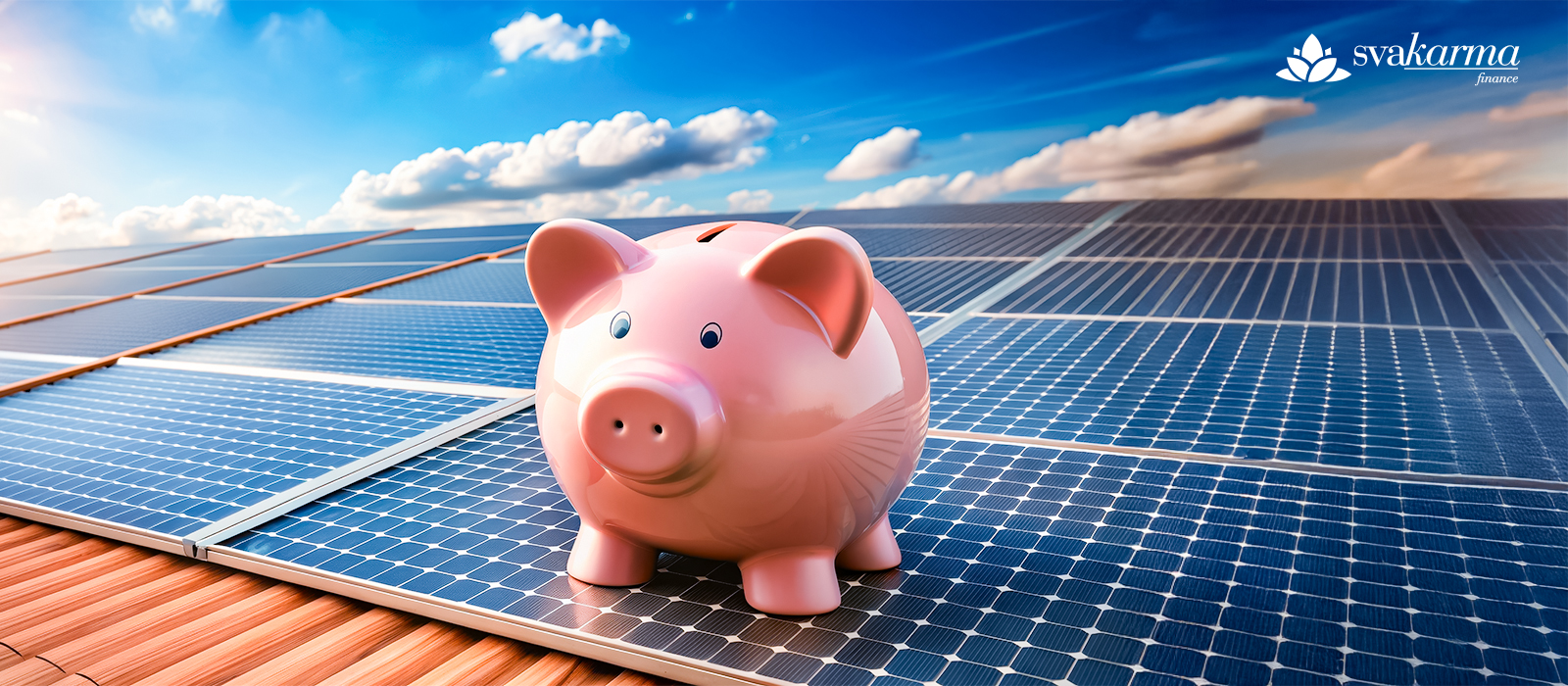A Guide to Choosing the Right Commercial Solar Financing Plan for Your Business

- Understanding Solar Financing for Businesses
- Key Considerations Before Choosing a Solar Financing Plan
- Popular Commercial Solar Financing Options
- Benefits of Choosing the Right Commercial Solar Financing Plan
- Common Mistakes to Avoid When Choosing Solar Financing Plan For Businesses
- How to Evaluate and Finalize Your Commercial Solar Financing Plan
- Conclusion
As businesses look for ways to reduce energy costs and improve their environmental footprint, commercial solar installations are becoming an increasingly popular option. However, the upfront cost of a solar system can be a significant barrier. Fortunately, various solar financing options can make this transition more feasible. The key to making a smart investment is understanding the different solar financing plans available and choosing the one that best aligns with your business goals.
In this blog, we will guide you through the essentials of solar financing for businesses, how to choose the right solar financing plan, and explore the most popular options to help you make an informed decision.
Understanding Solar Financing for Businesses
Solar financing refers to the methods businesses use to fund the installation of solar energy systems. Rather than paying the full cost upfront, businesses can explore different solar financing for businesses options, such as loans, etc. These options allow businesses to install solar panels and enjoy the financial benefits of solar energy while paying over time or sharing savings with a third-party investor.
Understanding these financing models is crucial because each comes with its own benefits and obligations. The right plan can help your business save on energy costs, reduce carbon emissions, and improve your financial health in the long term.
Key Considerations Before Choosing a Solar Financing Plan
Before committing to a solar financing plan, businesses should consider several factors to ensure the investment aligns with their needs and goals. Some of the key considerations include:
- Energy Usage and Savings Potential: Estimate how much energy your business consumes and how much of that can be offset by solar energy. A solar expert can help you assess potential savings.
- Upfront Costs: Determine how much capital your business can afford to invest in solar technology, as well as whether you're willing to pay upfront costs or prefer to finance the system.
- Tax Incentives: Take advantage of tax credits and rebates available for solar installations. These incentives can significantly reduce the initial cost of solar panels.
- Financing Flexibility: Some flexible solar financing plans offer low interest rates or allow you to pay as your energy savings increase. It's important to evaluate these terms in light of your business's cash flow.
- Long-Term Goals: If your business plans to stay in the same location long-term, purchasing solar panels outright can be beneficial. However, if you anticipate moving in the near future, a lease or PPA might be more flexible.
Popular Commercial Solar Financing Options
There are several commercial solar financing options available, each offering unique benefits. Here are the most common types:
- Solar Loans for Businesses is one of the most popular options. With this model, you borrow money to cover the cost of the solar installation and repay the loan over time, typically with interest. Depending on the loan terms, the business owns the solar system, meaning it can claim all available tax incentives and rebates.
- Pros: Full ownership, tax credits, long-term savings on energy costs.
- Cons: Upfront payments (depending on the loan terms), loan approval process.
- Cash Purchase If your business has the capital, paying for the solar system outright can be the most cost-effective option in the long run. After the initial investment, there are no monthly payments, and the business can immediately start saving on energy bills.
- Pros: Full ownership, maximum savings over time.
- Cons: Large upfront cost, limited flexibility.
Benefits of Choosing the Right Commercial Solar Financing Plan
Selecting the right commercial solar financing plan is crucial to maximizing both financial and environmental benefits. Some of the key advantages include:
- Reduced Energy Bills: A good solar financing plan can help businesses lower their energy costs significantly. With solar power, you can generate your own electricity, leading to immediate savings on utility bills.
- Long-Term Savings: While the initial investment can be high, solar energy systems typically pay for themselves over time through energy savings. In some cases, businesses can recoup their investment in as little as 5-7 years.
- Improved Sustainability: Solar energy is clean and renewable. By adopting solar power, businesses contribute to reducing their carbon footprint, aligning with sustainability goals, and enhancing their corporate image.
- Tax Credits and Incentives: Solar financing plans that allow ownership open the door to significant federal, state, and local tax incentives, making solar an even more attractive option.
Common Mistakes to Avoid When Choosing Solar Financing Plan For Businesses
While solar loans for businesses and other financing models offer great opportunities, businesses often make mistakes when selecting the right plan. Some common mistakes to avoid include:
- Underestimating Upfront Costs: Even though financing options like PPAs or leases require little to no upfront payment, businesses should still consider long-term costs, including interest or lease payments.
- Not Considering Maintenance Costs: Some solar financing plans require businesses to pay for maintenance or system upgrades, which could impact long-term savings.
- Choosing Short-Term Savings Over Long-Term Investment: While plans with lower upfront costs might seem attractive, they may not offer the best savings over time. Always consider the system's total cost and potential return on investment.
- Ignoring the Fine Print: Make sure to read the terms and conditions of the financing contract thoroughly. Unexpected fees or poor contract terms can diminish the overall value of the investment.
How to Evaluate and Finalize Your Commercial Solar Financing Plan
When evaluating and finalizing your commercial solar financing plan, consider the following steps:
- Consult a Solar Expert: Work with an expert to understand your energy needs, savings potential, and available financing options.
- Compare Financing Options: Compare different solar financing models, considering factors like interest rates, upfront costs, loan terms, and ownership structure.
- Review the Total Cost: Look beyond monthly payments and focus on the total cost of the system over its lifespan, factoring in energy savings, maintenance, and incentives.
- Consult with Financial Advisors: A financial advisor can help you determine the impact of solar financing on your business's cash flow and long-term financial goals.
Conclusion
Choosing the right solar financing plan for your business is an important decision that requires careful consideration. By understanding your energy needs, the financing options available, and the long-term benefits of solar energy, your business can make an informed decision that will reduce energy costs and contribute to a more sustainable future.
At Svakarma, we understand that financing decisions are critical to business success. That's why we offer business loans tailored to your needs, helping you invest in solar energy and other growth opportunities. With flexible repayment options, quick approval, and competitive rates, our business loans ensure your company can make the most of its energy and investment potential.
Take the first step toward energy savings and sustainability with Svakarma's Solar loan solutions today.


